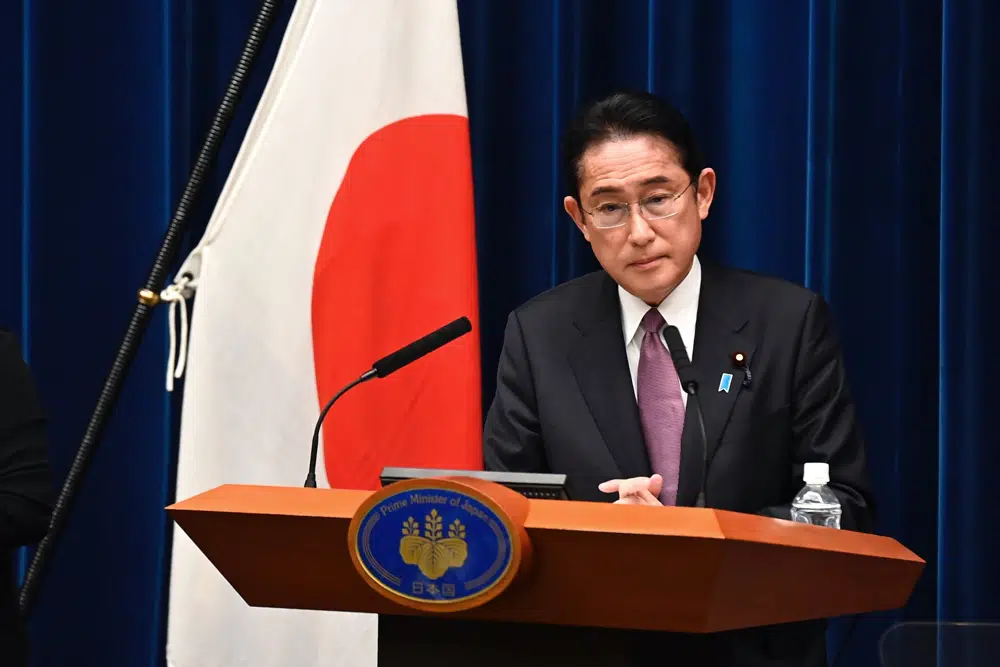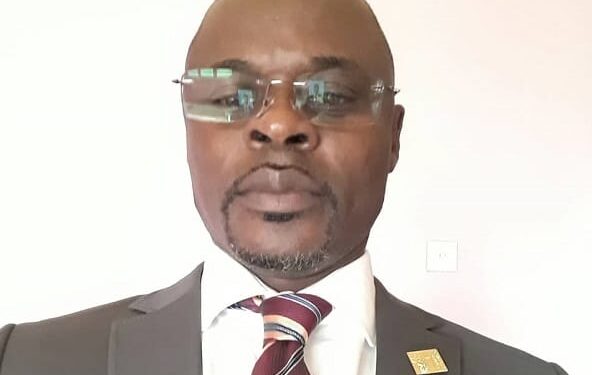Japanese Prime Minister, Fumio Kishida has announced he will not seek re-election as the leader of the ruling Liberal Democratic Party (LDP) in next month’s party polls.
His drop out of the race means a new leader who wins the party vote will succeed him as Prime Minister because the LDP controls both houses of parliament.
The job of Prime Minister goes to the leader of the party with the most seats in parliament.
Speaking at a news conference in Tokyo, Kishida said that it was time for a new face at the helm of the LDP and that he would fully support their leadership.
“In this election, it is necessary to show the people that the LDP is changing and the party is a new LDP,” Kishida told reporters.
“For this, transparent and open elections and free and vigorous debate are important. The most obvious first step to show that the LDP will change is for me to step aside. I will not be running in the forthcoming presidential election.”
“I have made the heavy decision with a strong desire to move forward with political reform, because the people’s trust is what makes politics work.”
Fumio Kishida
Kishida was elected party President in September 2021 for a three-year term and won a general election shortly afterwards.
The LDP, which has held power almost continuously since its founding in 1955, has in recent months been embroiled in one of Japan’s biggest political scandals in decades.
Two of the most influential factions in the LDP have been accused of failing to properly declare their income and expenditure and, in some instances, allegedly rerouting political funds to lawmakers as kickbacks.
Scandals surrounding several high-ranking officials haven’t helped, with some accused of involvement with election law violations or of offensive past comments against minorities.
The scandal also surrounded unreported political funds raised through tickets sold for party events. More than 80 LDP lawmakers, mostly belonging to a major party faction previously led by assassinated former Prime Minister Shinzo Abe, have been caught up in the scandal and 10 people – lawmakers and their aides – were indicted in January.
Since the corruption scandal broke, Kishida has removed several cabinet ministers and others from party executive posts, dissolved party factions that were criticised as the source of money-for-favour politics and amended a law that aims to control political funds and payments to crack down on ministers fail to appropriately report income.
Despite Kishida’s best efforts, support for his government has still dwindled.
One survey by the Mainichi Shimbun newspaper showed a historic high in public disapproval toward the cabinet, at 79%.
His successor will be tasked with leading the world’s fourth-largest economy at a time of increasing living costs, which have been exacerbated by the weak yen.
Kenta Izumi, the leader of the Constitutional Democratic Party, the country’s main opposition party, noted that the issues which had caused trouble for Kishida has not gone away.
“These problems are still unsolved,” he wrote on social media platform X.
Some Party Leaders Express Surprise And Disappointment

According to Japanese news media, Kishida had informed senior administration officials of his intention not to run.
Some party leaders expressed surprise and disappointment.
A senior leader told Japan’s national broadcaster that he had attempted to persuade Kishida to run for re-election but Kishida responded that doing so would have been “irresponsible.”
A member of Kishida’s faction within the party described the decision as “very regrettable and unfortunate.”
The member noted that Kishida had a strong record in foreign policy, defense policy, and domestic politics, but was ultimately forced to step down due to issues related to “politics and money.”
READ ALSO: A-Level Reforms Drive Students Away from Humanities





















